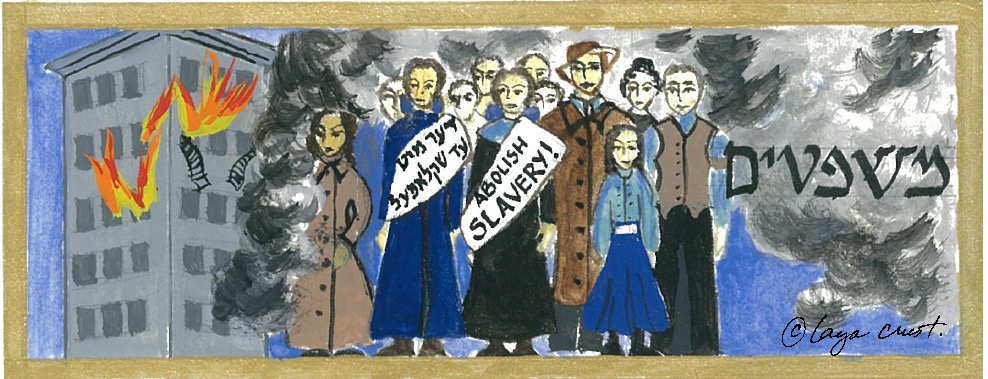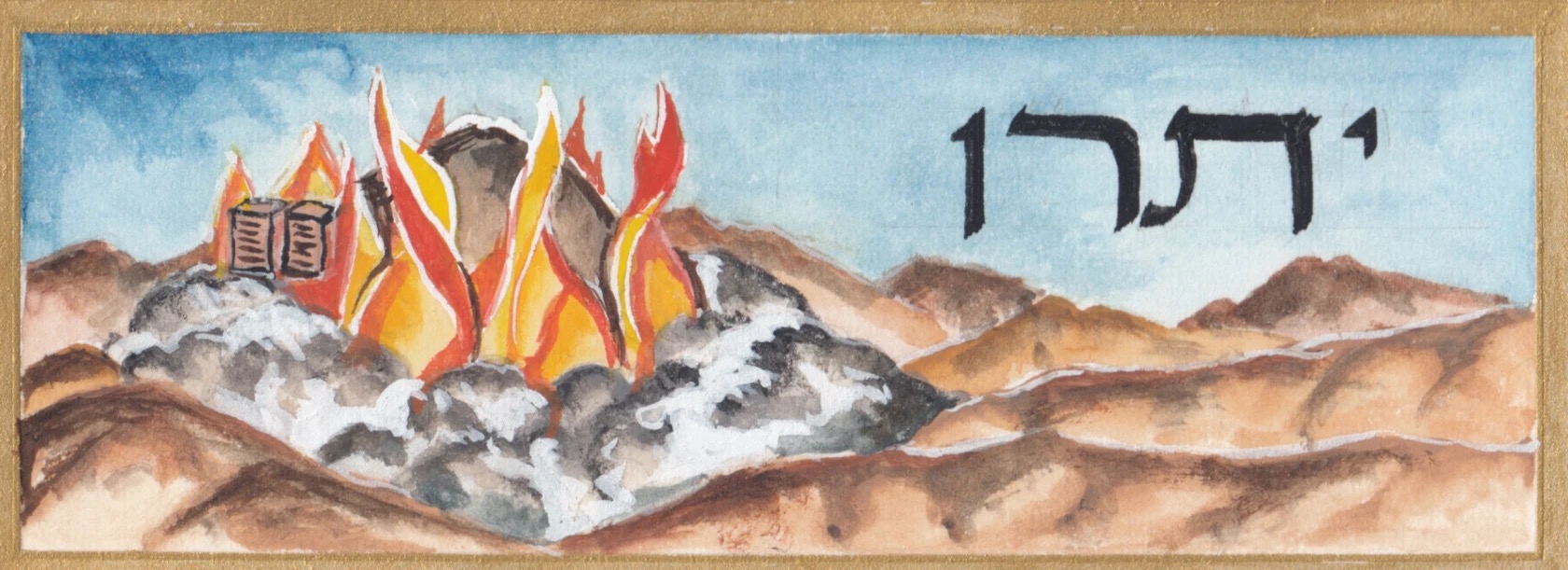Torah Study Date
Saturday, March 23, 2024
Verses Covered
Exodus (Sh’mot) 21:5-21:15
Next Session
Saturday, April 13, 2024
Starting at Exodus 21:16
Last week we discussed the fact that if the (male) slave came with a wife, he leaves with a wife, but if he was given a wife by the master, he leaves without the wife and any children, and that if the (male) slave declares that he loves his master, wife and children, he will be taken to God and the doorpost where his ears will be pierced indicating that he will serve the master forever. We, like our artist for today, decried slavery. R. Sara noted that there is a modicum of choice, at least, and that the slave only serves six years. We then discussed slavery in our world, where it exists, in prisons, for example, or in some cities where immigrants are held as slaves. We also discussed unfair labor practices. The point was not to say that slavery in Exodus is good but to note that it is not chattel slavery (at least for the men) like the slavery that was practiced in the Americas and also that our labor practices are not always so great, either.
We then discussed the situation for a daughter sold as a maid (amah). She does not go out as the (male) slaves go out. Also, if she is bad in her master’s eyes (likely meaning he does not desire her), he shall let her be redeemed by someone in the community and not dominate her by selling her to foreign people (where redemption is a monetary relation). Also, we noted, if the master takes another woman as his wife, he still must provide three things to the maid: food, clothing and hygiene (some say conjugal relations rather than hygiene). If he doesn’t do these three things, she will go free since there is no money. We also decried the situation of women. R. Sara noted that Egyptian women, by contrast, could own property and could divorce. We discussed women’s situation in recent history, for example, that they could not have a credit card in their own name and that women’s labor in the home is not paid so that women in bad relationships may not, financially, be able to leave.
We discussed the fact that one who strikes another and he dies would be put to death but that one who accidentally kills another (one who does not scheme or intend to kill) will be given a safe place to flee to (perhaps to avoid vendetta justice since there are no law courts at this point). We also noted that one who strikes his father and his mother will be put to death. We discussed the prevalence of elder abuse.
Our artwork this week is by Toronto Jewish artist, Laya Crust, Mishpatim (above) and Yitro (below). In Mishpatim, she portrays a group of protestors calling for the abolition of slavery. Yitro shows the fire at the mountain where Torah is given. If she is designated for the master’s son, the master will treat her as a daughter. “What I try to do through my art is to touch people’s minds and emotions. When I design a piece, I try to find the source and soul of the work,” Crust says. “I work to uncover the essence of the message. In that way I can talk to the soul of the viewer.”


